Hello, It's December 2, 2014
Stories referenced in this podcast include: The Rise and Fall of Vincent Winfield.
New York City, November 30, 2014
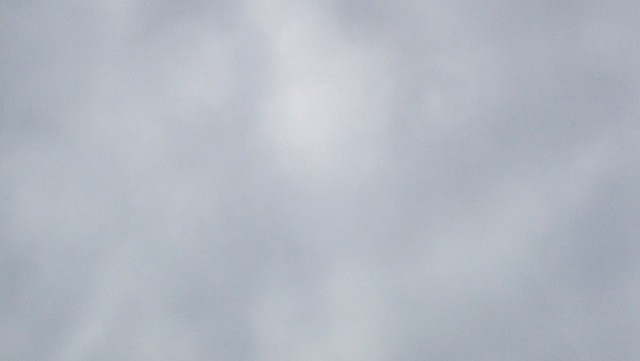
★★ The brightness of the morning was a taunting fakeout, a ten-dollar bill on an invisible fishing line. Clouds closed in, and though the bitter cold was gone, the bleak light was back in place. A woman remonstrated with her companion in the elevator for his having let her set out in a fur coat. But the three-year-old’s hands, sticking out of the sleeve of his hoodie, went chilly in the time it took to go pick up hot dogs. A pigeon drank from a puddle clogged with leaves, the dark water sooty and tannic. It wasn’t worth the effort to watch out for the moment the ruin of daytime finished prematurely collapsing into night.
When Your Adorable Cat Is a Barf-and-Splooge-Spewing Monster
by Matthew J.X. Malady
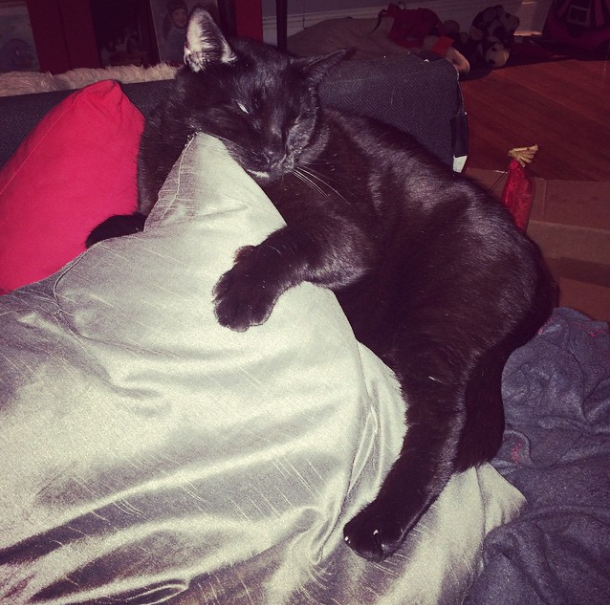
People drop things on the Internet and run all the time. So we have to ask. In this edition, Alkemy-X creative director Bex Schwartz tells us more about the phenomenon that is animal-to-human domino effect vomiting.
It happened AGAIN. The cat barfed on me and that made me barf on the cat.
— @starbex
Bex! So what happened here?
I should explain that this mutual, associative-property human/feline barfing experience happened before. A few months after I adopted Panda Boo Bear, I was still sleeping unclothed. (This changed soon thereafter due to Panda’s discovery that he could hump his sex monkey til near-fruition and then jump on me to finish his business. I know; it’s a thing. He had two extra sets of testicles, and so there was a lot of cat ejaculate around my apartment. I bought a steamer. It’s better now. He’s been fixed three times.) So one morning, I was snoozing through my alarms because I knew I had a little extra morning-time while an audio engineer was loading in and prepping the spot I was producing. It was summer, and I’d kicked off the sheets. Panda Boo jumped onto my stomach, waking me up. He barfed all over my torso, and I automatically barfed back all over him. It was just . . . when he barfed it was so warm and so gooshy, and I was only barely conscious and so I yakked.
This was the first time this ever happened, so I put us both in the shower and he did NOT want to be shampooed so he jumped out of the shower and then both of us were dripping wet and running around the apartment because I was trying to towel him off, and I slipped and slammed my hip into a doorknob. We were both soaked and naked and unhappy. It was not our best hour as roommates.
That night at picnic club, I was trying to describe how it was so repulsive to be barfed on that I simply could not control barfing back, and since this group of friends were not parents, I assumed none of them had ever been barfed on. Except for my best friend Josh, who calmly reminded me of the Thesis-Recess night in college when I drank so much red sangria that when we started playing Mario Kart, I booted all over myself and all over Josh. (I should note that we scavenged all our living room furniture, so I was sitting in an antique wheelchair for Mario Kart time.) Apparently I said, “I’m not feeling so good,” and then I projectile-vomited bright red horror right into Josh’s lap. And then I passed out and Josh had to hose me down with the kitchen sink spigot-thing and then get me into jammies. Our other housemates came home later that night and found him rocking catatonically on the front porch. Mistakes were made.
So, anyway, the other day I got up and got dressed in a nice dress and some ribbed, woolen tights because it was cold but I was going to go a fancy restaurant for lunch to interview a famous person, and I wanted to look like a professional powerlady. I was sitting at my desk in my “home office” (aka my living room) answering some emails before walking to the office (sometimes I like to work before work), and Panda Boo jumped onto my keyboard. I shoved him into my lap so I could keep writing, and then he instantly barfed. All over my lap and my ribbed woolen tights. And once again, it was so warm and so gooshy that I instantaneously barfed on him. He yelped and ran away. I shucked off my clothes and went to wipe off the cat with a paper towel, and then I rubbed some coconut oil on him for his fur. (After Hurricane Sandy, when we lived in the dark and there were high-pitched pumping noises 24/7, he got really anxious and tore out all the fur on the back of his neck. The vet put him on kitty Prozac and prescription drugs but nothing worked until I read on the internets that coconut oil helps horses with skin issues. After a week of coconut oil application, his fur started growing back. So he gets rubbed down whenever I think he might be feeling anxious. Like when he’s just barfed on me then I’ve barfed on him.)
I threw my tights and dress in the tub and turned on the cold water (because protein stains?) and threw in Woolite. Then I emailed my team that I was running late due to cat barf and chose another outfit. For those of you who don’t wear ribbed woolen tights, just imagine thick tights with grooves that are perfect for trapping cat barf.
Do you have a tendency to become sick and throw up easily, or is this a cat-barf-specific phenomenon? And how does your cat respond when you throw up on him? Does he get pissed at you, or judgmental?
When I get a cold, it always turns into a sinus infection, so I’m often filled with goo and therefore a bit post-nasal-drippy. But that’s like minor nausea and not full-on booting, almost always. Most of the time before Panda Boo Bear came to live with me, I was pretty good about not yakking. But a year or so ago, the vet but Panda on a special “light” version of his dry food, and the smell of those pellets started making me gag. Ever since he’s been eating that food, I sort of get all nauseated after feeding him. He is allowed to eat poultry cat food and fish cat food, but not cow or goat or sheep cat food, because he’s only allowed to eat foods he could conceivably catch and kill. Sometimes his wet food makes me gag, but I’m much better with that than the smell of that dang low-calorie dry food.
Other than that, I’m relatively puke-free except that I’ve been a vegetarian since I was 12 so I am very susceptible to food-borne pathogens from cross-contamination (like if I eat broccoli that somehow got chicken juice near it, or something). Twice I got food poisoning from kale salad and had to leave my old job and run home from Times Square, vomiting in between subway cars or on the trees along my block. Both of those times, Panda inserted himself in between me and the toilet because he wants to be as close to me as possible at all times, and I sort of barfed on him, just a little bit. But it’s only because his head was between my mouth and the toilet. In those situations, Panda was mildly upset that his head got wet, but he wasn’t super angry. He turns into Dr. Panda when I am not feeling well, and that means he’ll be extra purr-y and nice.
In the more major incidents of barfing-on-the-cat, he was much angrier about being cleaned up than he was about being vomited on. I think. He definitely did not want to be in the shower, I can tell you that much.
Lesson learned (if any)?
There are many, many horrible things in the world, and if your cat barfs on you and then you barf on the cat, just think what a minor insignificance you’re dealing with, when there’s so much shit happening elsewhere. Also, I guess, maybe don’t shove the cat into your lap if you’re wearing ribbed woolen tights. And if this ever happens to you, clean off your cat with a paper towel and do not put him in the shower with you. (Note: Panda Boo Bear is a relatively short-haired cat. I’m not sure at all what you do if you have one of those fancy kitties with really long hair. That might require shampooing and conditioning? I have no idea.)
Just one more thing.
My cat humped and ejaculated on all of my pillows and blankets for almost a year, and I had to dry clean things twice a week. And then I got him the aforementioned sex monkey, but there were still times when he would spoo on my body. Then they discovered his third set of testicles, and the vet fixed that, and now he doesn’t hump things anymore. So really, when we’re talking about cat-protein-spilling, being barfed on is not the worst. Scraping dried cat-spoo off your chest is the worst.
Join the Tell Us More Street Team today! Have you spotted a tweet or some other web thing that you think would make for a perfect Tell Us More column? Get in touch through the Tell Us More tip line.
Röyksopp, "Skulls"
A black-metal-in-the-club video for Röyksopp’s The Inevitable End single — and proof, maybe, that the feeling of living near-constant darkness for six months of the year transcends genre.
Times Boom
Nearly fifty million more dollars has been administered to Vox Media — publisher of websites, producer of content — bringing its total raise up to about one hundred ten million, and its valuation to about three-eighty. BuzzFeed has raised a similar amount of money but is valued at more than twice as much. Why? “For one, geniuses, it has half BF’s revenues,” says Rafat Ali, who is oversimplifying a little bit: BuzzFeed’s video operation, which is EXTREMELY interesting to investors, is already much, much larger than Vox’s and has clear potential, ad-wise. But Ali does have a point: These investments — and the huge investments in Vice — are neither mysterious nor confusing. They are bets that companies with advertising revenue will be able to produce more advertising revenue, or that maybe they will be purchased by companies with even more advertising revenue. Their editorial pitches might be different but their investment pitches are the same: They are, effectively, ad agencies for Facebook or for YouTube or for Twitter or for Pinterest or for whatever new thing comes along. None depend on BLOWING UP or HOCKEY STICK GROWTH or winning the startup user lottery — that is to say, all of them can succeed at once, for similar reasons. They are different plays on the same prospects; they are bets — some with better odds than others — that these prospects will continue to yield long enough to cash out (an impending cash-out, or an acquisition tour, would certainly explain Vox’s raise!). That is their promise and that is their risk. What makes them interesting — all together — is how completely that risk is out of their control. In conclusion: invest in salad?
Thanks Given
Happy Thanksgiving! We hope you are able to get off the internet and enjoy a rarer, more visceral stupor among family and friends. If you can’t — if the internet’s churning conflicts and blurted anxieties today feel like refuge — here are a few things to cook, a few sad things to read, and a few things to help keep it all down.
New York City, November 25, 2014
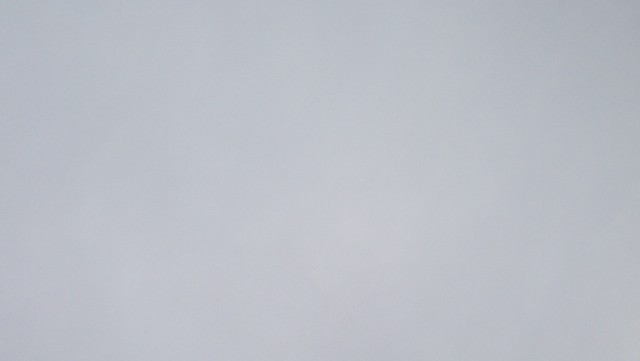
★★ Two dense flocks of little dark birds plunged past the window, against the gray. The sun was a white unround blotch, the warmth was ebbing, the light dull. Wind rattled in the withered drab oak leaves still on the branches. The afternoon was short, though by nightfall the clouds had separated into individual forms, pale with the blended indeterminate color of reflected city light. The supposedly brewing storm was only theoretical, the converging forces not visibly converging. The ice cream truck was back at the corner. Later, the sound of chanting carried on the night air. Clouds had returned, holding in the sound of the choppers, now hovering, now coming low and turning uptown. The ground was soft, the grass colorless in the flashing lights, where the marchers streamed down the slope by Riverside Drive and up toward the elevated expressway. The smell of road flares drifted along the cross street.
Uber Forever
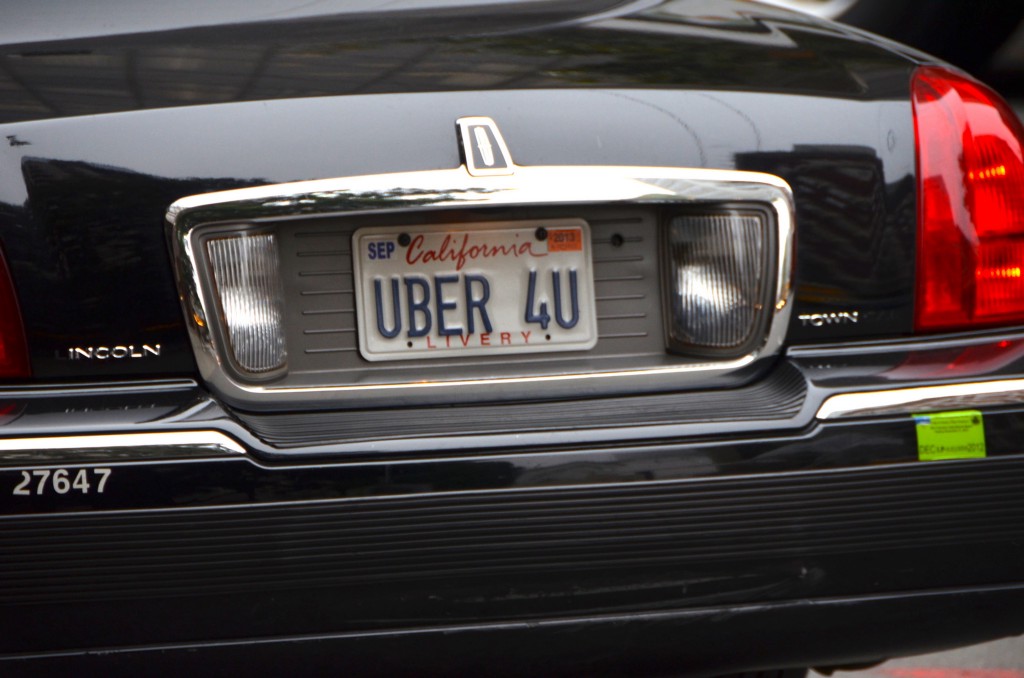
Numbers are boring, except when they’re not, like when Uber, a five-year-old company that has accumulated over a billion-and-a-half dollars in investment capital and is worth eighteen billion dollars, stands to raise another billion and double in value from six months ago, to between thirty-five and forty billion dollars. This, Bloomberg helpfully points out, puts Uber at “about 1.5 times the capitalization of microblogging service Twitter Inc. and at about the same size as Salesforce.com Inc., Delta Airlines Inc. and Kraft Foods Group Inc.”
Though both Uber and Delta are in the people-moving business — Delta being the world’s busiest airline, with over a hundred and twenty million passengers last year — it would seem to make more sense to put Uber in the context of cars: Bloomberg also notes that Hertz, the largest rental car company in the U.S., has a market capitalization of $11.3 billion, while the entire U.S. taxi business generates some eleven billion dollars a year.
But Uber isn’t really a car company, either; like many technology startups that operate in the physical world — the ones that don’t depend solely on advertising and attention widgets — it is most fundamentally a logistics company, one with growth potential that, to its investors, is nearly infinite, making shares in it a bargain at any price: Uber is in some hundred and thirty markets and its revenue doubles every six months (and estimates are that within a year, it will be generating ten billion dollars in revenue annually). More exemplary of that potential, maybe, is that when Uber first started in San Francisco, the size of the entire taxi and limo market was around a hundred and twenty million dollars; today, in San Francisco alone, Uber makes “several hundred million” dollars a year, according to Kalanick. (According to Henry Blodget, it is used by twenty-five percent of all smartphone users in San Francisco. As he points out, it could “eventually be much higher — perhaps fifty or seventy-five percent of smartphone users.”)
As Uber’s CEO Travis Kalanick put it to Evelyn Ruesli, “it’s about the market we’re creating.” Right now, that market is largely based on new passengers in new cities, or, more fundamentally to Uber’s business, people that have not or do not normally take cabs but now use Uber because it is more convenient and cheaper than a taxi (in New York City) or parking (Los Angeles) or drunk driving (any city except New York). The goal is not merely to “basically make car ownership a thing of the past,” as Kalanick told Ruesli, but to subvert and supplant existing parts of transit infrastructure, whether they should be disrupted (the old taxi system in San Francisco) or not (public transit). Uber, as a logistics company, efficiently matches empty cars to eager passengers. (And, occasionally, ice cream, barbecue, and Christmas trees, as “experiments.”) As Uber creates more passengers it needs a larger supply of drivers and vehicles; most of those new passengers are taking its cheapest service, UberX, which is the engine of Uber’s ubiquity. UberX relies on independent drivers using their own vehicles, insurance, and gasoline to convey passengers at their own risk, for a portion of each fare; Uber expends a great deal of energy to ensnare new drivers to meet the ceaseless demand it has created for its absurdly cheap rides, which it has made semi-sustainable with its massive warchest and by cutting drivers’ fares to keep costs low.
It is a foregone conclusion that Uber will, in short order, crush its rivals like Lyft into pulp for listicles about dead tech companies — and perhaps even regular taxis, barring steadfast government regulation. It will win. Another one of those conclusions, particularly if you are a Silicon Valley venture utopist, is that its human drivers are merely temporary drags on both Uber’s revenues and efficiency that will remedied in the coming years by self-driving cars (whose chief proponent is one of Uber’s single largest investors, Google). Algorithms require no wages at all; truly do not care if you play Beyonce songs through your Spotify account and aren’t just telling you that so you don’t give them a bad rating; and will not smash passengers in the face with a hammer. In this brave new efficient world in which all cars are connected, self-driving, electric vehicles, it makes almost no sense to personally own one unless you are laughably rich; they will all be managed, distributed, and routed by a single, vast logistics company.
Best of all for investors, personal conveyances will perhaps just one small part of a nearly infinite enterprise’s business since, from a certain point of view, the world is just one giant logistics problem. That enterprise might be Google, or Amazon, or, even better for a budding venture capitalist, one that doesn’t even exist yet. But there’s also not a terrible chance that it will be Uber. Worse bets have been made on the future.
Photo by Adam Fagen
After Normal
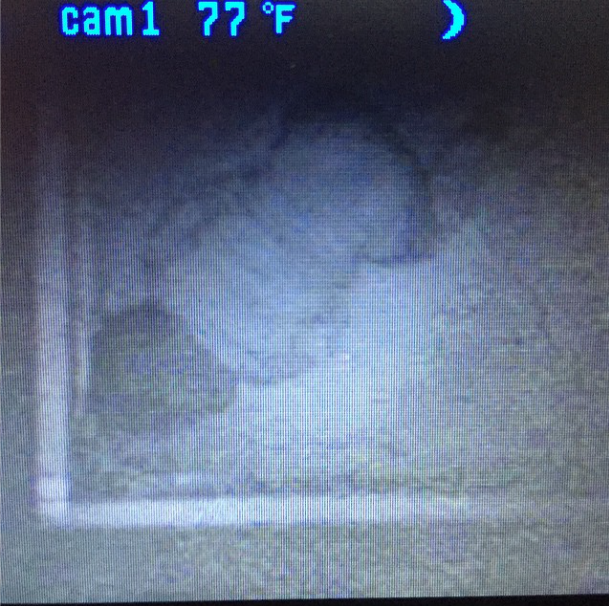
Last February, Zelda was born in the middle of a snow storm. Even though I had a C-section and Zelda was born a little early, we were happily shipped home just thirty six hours later. Mom (that’s me now, it turns out) was doing great and Zelda was a trooper.
In hindsight, I might have chosen to hang about in the hospital as long as my insurance would cover — which I think was about five days — but, in the haze and the happiness of a healthy birth, when the doctor says, “You’re doing great, up and walking all over the place! Would you be happier at home?” you don’t consider the nurses who pop in every hour to ask you if you want water or food, or to re-swaddle your baby because you have no idea how to do that yet. You don’t think about the fact that you push a button every time the baby cries because OF COURSE you don’t know what she wants; you don’t think about the fact that when she is feeding at your breast it’s very helpful to have a nurse peer over and say, “Yes, that’s right,” or, “No, honey, that’s your elbow she is sucking on.” You only think of returning home to some semblance of normalcy. No one tells you that normal is over; it’s gone, poof.
When we took a tour of our hospital about two months before Z was born, Josh and I saw a couple — yes, they walk you through a working hospital! — getting off the elevator. They looked maniacal, giggling as they rolled off the lift, dad with a little car seat in hand. And in that car seat was the tiniest thing, a slip of a babe. I don’t know if it was sleeping or just being a newborn, but we talked about it then: “They look like they’re stealing it!” They seemed so happy and full of possibility. Tears welled up in my eyes. They knew everyone was beaming at them, all the pregnant ladies in a row waiting to get on the elevator, to ride up to see where their own babies would be born. They didn’t know what awaited at “home.”
They set us free at about 5PM on a Thursday. We loaded her into her carseat in the hospital room, squishing little rolled up blankets around her because she was so small she needed the padding. We put her in the car and my brother-in-law drove us home, through the crazy Manhattan traffic to Brooklyn. We we were home. And alone.
Now what? We let her sit on the couch in her car seat for a bit. Then we took her out and laid her into a Moses basket. She lay there, staring at the ceiling. We had a bassinet in our bedroom set up, too. We put her in that next. More lying, more stare. What do you do with a baby?
Suddenly, she seemed like she wasn’t breathing that well. She sounded like a tiny dinosaur. (Did you know that newborns don’t breath through their mouths? They can only use their noses; they figure out how to use their mouths to inhale and exhale later on, like after five or six months.) We had a bulb syringe, helpfully given to us in our hospital package, to suck snot out of her nose. But we didn’t know how to use it. We called our friends who had a toddler. Even though they clearly cared about our family, they seemed quite nonchalant about our life-or-death emergency. “It will be fine, just use the snot sucker,” they said. Then we called the hospital. We wanted to take her back. “Can we bring her back? Her nose is stuffed up.” “No,” we were told. “You’d have to take her to the emergency room.”
Because Zelda was early and slightly underweight, we had an appointment in the morning to have her weighed by a pediatrician. But how would we make it until then? We sat on the couch, panicked, pretending to sleep. The baby — did she sleep? I have no idea. When 9 AM arrived, she was still breathing, but loudly. We loaded her back into the car seat, into the car, and up to the pediatrician’s office, which was about three minutes away. We waited the three excruciating minutes to hear our doom pronounced.
The doctor came in and said, “What a beautiful baby!” She was Polish, her accent thick. We asked about her nose. “She can’t breathe,” we said. She agreed that Zelda had some leftover birthing stuffiness, which could be taken care of with saline and a snot-sucking tool. She sucked out the snot and said, “See, just do that.” She then pronounced, “This baby is perfect,” ready to send us on our way. But we desperately wanted to stay; we wanted a doctor next to us at all times, just to tell us Zelda was okay.
And she was, but that hardly stopped us from worrying constantly. We sleep because the baby does, but I don’t ever REALLY fully shut my eyes. That’s “normal” now: a constant low-grade worry on behalf of someone else’s life, an overwhelming love for someone you could cry at any moment. It is moving from crisis to crisis, averting or navigating beyond each one, emerging stronger and smarter, but also a little more tired. Normal is always, always being bone tired, but not wanting to sleep in when you hear her stirring. Normal is thinking less about yourself.
Normal now is experiencing each new thing as if for the first time: the seasons changing, the holidays. Zelda’s first autumn. Zelda’s first Thanksgiving. Zelda’s first Hanukkah. Zelda’s second snow storm.
The Parent Rap is an endearing column about the fucked up and cruel world of parenting.
